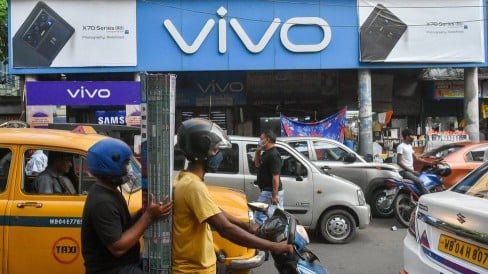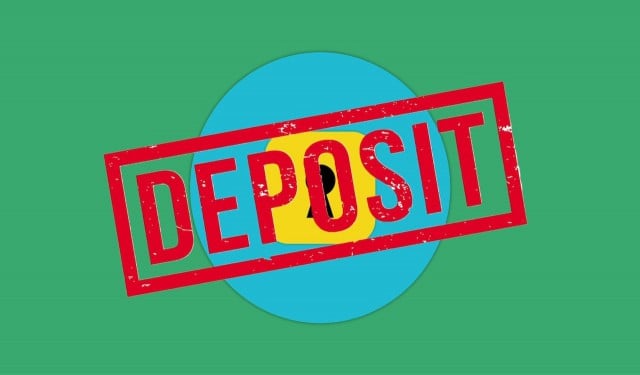
India's financial crimes agency has arrested a Chinese employee of smartphone maker Vivo, the firm said.
Indian officials have not commented yet but Vivo said it "will exercise all available legal options" on behalf of its employee, Andrew Kuang.
Authorities raided Vivo's office last year, accusing it of illegal remittances from India to China.
It is the second-biggest smartphone brand in India, after Samsung, according to industry data.
Vivo has denied any wrongdoing and said it complies with Indian law.
The arrest comes on the back of a widening rift between India and China.
Last week, Reuters reported that Indian police had formally accused Vivo of helping transfer funds illegally to NewsClick, a news portal that is under investigation on charges of spreading Chinese propaganda.
Tuesday's arrest happened under the Prevention of Money Laundering Act (PMLA). It is "a very stringent law and allows for criminal cases to be filed, unlike regular foreign exchange violations which are majorly considered civil offenses," according to Atul Pandey, Senior Partner at legal firm Khaitan.
Vivo has also been accused of customs evasion by the tax enforcement agency. The firm is owned by China's BBK Electronics, which also operates brands such as Oppo and Realme in India.
In the past 18 months, Indian authorities have also targeted other Chinese mobile phone companies such as Xiaomi by freezing $670m of assets.
Earlier this year, India's minister of state for electronics and IT Rajeev Chandrashekhar told parliament that Chinese companies had evaded taxes to the tune of $1.1bn. He said the government had managed to recover only about 18% of this amount.
Speaking to the BBC on the condition of anonymity, a senior legal counsel who represents several Chinese companies in India said that the crackdown was initially meant to put pressure on the Chinese government in the aftermath of a deadly border clash in 2020 that killed 24 soldiers. India had responded then by banning hundreds of Chinese apps, including TikTok.
But subsequent investigations have led to major Chinese firms such as Xaomi and Oppo India being accused of financial crimes. Both firms have denied the allegations.
Relations between the neighbours have deteriorated since, with India most recently registering "strong protest" over a new Chinese map that it said laid claim to its territory.






